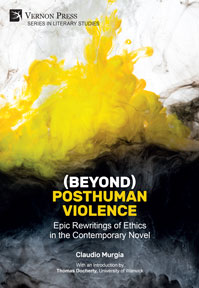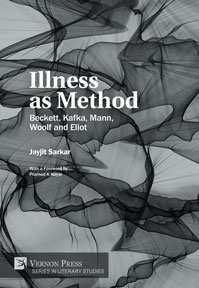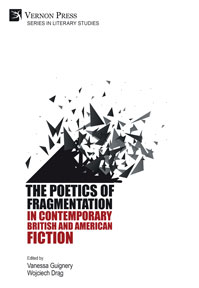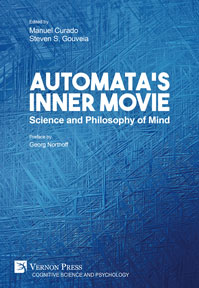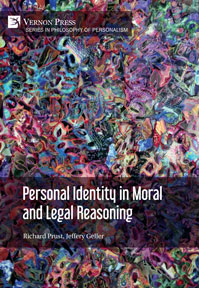Search
Browse
by Publication status
by Subject
Anthropology (26) Art (171) Business and Finance (38) Cognitive Science and Psychology (63) Communication and Journalism (51) Economics (116) Education (71) History (169) Human Geography (23) Interdisciplinary (43) Language and Linguistics (178) Law (16) Music Studies (18) Philosophy (222) Political Science and International Relations (127) Sociology (404) Statistics and Quantitative Methods (21)by Series
Series in Literary Studies (62) Series in Philosophy (57) Series in Education (49) Series in Sociology (42) Series in World History (31) Series in Politics (30) Bridging Languages and Scholarship (26) Series in Language and Linguistics (25) Cognitive Science and Psychology (20) Series in Philosophy of Religion (20) Series in American History (19) Series in Art (19) Critical Perspectives on Social Science (16) Series in Cinema and Culture (16) Curating and Interpreting Culture (15) Series on the History of Art (14) Series in Anthropology (13) Series in Critical Media Studies (13) Economics (13) Series in Business and Finance (12) Series in Music (12) Series in Performing Arts (9) Philosophy of Personalism (8) Series in Communication (8) Series in Law (8) Series in Economic Methodology (7) Series on Climate Change and Society (7) Classics in Economics (6) Series in Economic Development (6) Women's Studies (6) Philosophy of Forgiveness (5) Series in Built Environment (5) Series in Economic History (5) Series in Philosophy of Science (4) Series in Social Equality and Justice (4) Series on the History of Science (4) Serie en Sociología (3) Series in Contemporary History (3) Series in Creative Writing Studies (3) Series in Design (3) The Interdisciplinary Built Environment (3) Series in Heritage Studies (2) Series in Innovation Studies (2) Serie en Ciencias Políticas (1) Serie en Comunicación y Medios (1) Serie en Entorno Construido (1) Serie en Estudios Culturales (1) Serie En Estudios Literarios (1) Serie en Filosofía (1) Serie en Música (1) Series in Classical Studies (1) Series in Economics of Technological Change (1) Series in Philosophy of Race (1) Series in Urban Studies (1)by Language
English Spanishby Author
Browsing with filters
(Beyond) Posthuman Violence: Epic Rewritings of Ethics in the Contemporary Novel
Claudio Murgia, University of Warwick
Availability: In stock
220pp. ¦ $60 £45 €51
Neuroscience tells us that the brain is nothing but a metaphor machine capable of extracting meaning from a chaotic reality. Following Agamben, Arendt, Benjamin and Žižek, a theory of violence can be established according to which violence is a reaction on the part of the individual to the frustration generated by having her metaphor machine suppressed by the mythic narrative of the Law. In opposition to mythic violence, Benjamin posits the justice of divine violence. Divine justice is an excess of life, the very uniqueness of the metaphor machine. The individual is affected by a difficulty to communicate her metaphor machine to the Other, as if it were inexpressible. This work explores how the characters in the works of David Foster Wallace, Cormac MacCarthy, J. G. Ballard, Bret Easton Ellis, Chuck Palahniuk, William Gibson, Neal Stephenson, Maurice G. Dantec and China Mieville suffer from these limits of language and the constrictions of the Law. Through violence they look for their individual Voice, intended as their will-to-say, the ‘pure taking place of language’ (Agamben). In their struggle to be heard these characters are however deaf to the Voice of the Other. There is a need for a new Ethics of Narratives expressed through an Epic of the Voice founded on the will-to-listen, along the lines of the concept of the posthuman theorized by Rosi Braidotti. Here subjectivity is a process of constant autopoiesis dependent on the relationship the individual has with the Other and the environment around her, that is, in the reciprocal will-to-say and will-to-listen. Human beings can meet in the taking-place of language, in the place before the suppressive language of the Law is even born, in a meeting of Voices.
Illness as Method: Beckett, Kafka, Mann, Woolf and Eliot
Jayjit Sarkar, Raiganj University, India
Availability: In stock
116pp. ¦ $39 £29 €33
This work questions the problematic connections between illness and modernity: the complicated negotiations involving the body both in its physicality and phenomenology and the poetics and praxiality of illness. The project, which is predominantly conceptual in nature, for it does not see illness solely as a clinical-physical category (leaning heavily on the medical sciences), but rather perspectivizes its phenomenology and pathographical limits and manifestations, lateralizing on its critical correspondences with a selection of modernist texts ranging from Virginia Woolf to Samuel Beckett. The book unearths different ‘possibilities’ of illness without denying its (quite natural) association with morbidity, pain, suffering, dying and death. It looks at illness and its effects on different bodies phenomenologically with the help of some twentieth-century philosophers, including Martin Heidegger, Jean Luc-Nancy, Maurice Merleau-Ponty, Jean-Paul Sartre and Emmanuel Levinas. The book locates these phenomenological understandings in a reading of some of the important literary works of early twentieth-century Europe — five literary works from five different genres (poetry, drama, fiction, non-fiction and epistle) — critiquing the relevance of the phenomenological body in the literary and narrative world of the texts. The author deals with Samuel Beckett’s Endgame, Franz Kafka’s letters, Thomas Mann’s Death in Venice, Virginia Woolf’s On Being Ill and T. S. Eliot’s The Wasteland within the aesthetico-philosophical space and the epistemic dialogism that modernist aesthetics implies and espouses.
The Poetics of Fragmentation in Contemporary British and American Fiction
Edited by
Vanessa Guignery, École Normale Supérieure de Lyon, France
and Wojciech Drąg, University of Wrocław, Poland
Availability: In stock
252pp. ¦ $61 £46 €52
The last decades have seen a revival of fragmentation in British and American works of fiction that deny linearity, coherence and continuity in favour of disruption, gaps and fissures. Authors such as Ali Smith, David Mitchell and David Shields have sought new ways of representing our global, media-saturated contemporary experience which differ from modernist and postmodernist experimentations from which the writers nevertheless draw inspiration. This volume aims to investigate some of the most important contributions to fragmentary literature from British and American writers since the 1990s, with a particular emphasis on texts released in the twenty-first century. The chapters within examine whether contemporary forms of literary fragmentation constitute a return to the modernist episteme or the fragmented literature of exhaustion of the 1960s, mark a continuity with postmodernist aesthetics or signal a deviation from past models and an attempt to reflect today’s accelerated culture of social media and over-communication. Contributors theorise and classify literary fragments, examine the relationship between fragmentation and the Zeitgeist (influenced by globalisation, media saturation and social networks), analyse the mechanics of multimodal and multimedial fictions, and consider the capacity of literary fragmentation to represent personal or collective trauma and to address ethical concerns. They also investigate the ways in which the architecture of the printed book is destabilised and how aesthetic processes involving fragmentation, bricolage and/or collage raise ontological, ethical and epistemological questions about the globalised contemporary world we live in and its relation to the self and the other. Besides the aforementioned authors, the volume makes reference to the works of J. G. Ballard, Julian Barnes, Mark Z. Danielewski, David Markson, Jonathan Safran Foer, David Foster Wallace, Jeanette Winterson and several others.
Automata’s Inner Movie: Science and Philosophy of Mind
Edited by
Manuel Curado, University of Minho, Portugal
and Steven S. Gouveia, University of Porto, Portugal
Availability: In stock
387pp. ¦ $66 £50 €56
This book brings together researchers from a variety of fields to jointly present and discuss some of the most relevant problems around the conscious mind. This academic plurality perfectly characterizes the complexity with which a current researcher is confronted to discuss and work on this topic. The volume is organized as follows: Part I introduces the general problems of Philosophy of Mind and some historical perspectives. Part II focuses on understanding the input that the empirical sciences can offer to the theoretical problems. Part III discusses some of the core concepts of the field, namely, perception, memory and experience. Part IV debates human and artificial intelligence and, finally, Part V deliberates about the computation and the ethics of big data and artificial intelligence. The book contains valuable material for researchers in several fields such as Cognitive Science and Neuroscience, Psychology and Artificial Intelligence, and Philosophy. It can also be used as a guide to some courses at various levels, from BAs to MAs and PhD courses of several fields. It is our belief, as it is claimed in the preface by Georg Northoff, that there is an urgent need for a truly transdisciplinary exchange between philosophy and the sciences in order to stimulate some real progress. We hope that this book will become a sound step for such an interdisciplinary enterprise.
Personal Identity in Moral and Legal Reasoning
Richard Prust, St. Andrews University, USA
and Jeffery Geller, University of North Carolina at Pembroke
Availability: In stock
132pp. ¦ $43 £32 €36
Many questions about moral and legal judgments hinge on how we understand the identity of the agents. The intractability of many of these questions stems, this book argues, from ignoring how we actually connect actions with agents. When making everyday judgments about the morality or legality of actions, we do not use Aristotelian logic but what is termed “character logic”. The difference is crucial because implicit in character logic is an understanding of personal identity that is both coherent and intuitively familiar. A person, as we conceptualize him in moral and legal contexts, is a character of resolve. By unpacking what it means to be a character of resolve, this book reveals what underwrites our most fundamental beliefs about a person’s rights and responsibilities. It also provides a new and useful perspective on a variety of issues about rights and responsibilities that perennially occupy philosophers. This book discusses the following: • How we can make better sense of “human rights” if we think of them as “personal rights”. • How the right to be civilly disobedient, in contrast with ordinary law-breaking, can be justified as a personal right. • What basis we have for holding that someone’s responsibility is diminished. • How it makes sense to hold someone responsible for acting irresponsibly. • How it makes sense to distinguish a juvenile offender from someone who should be tried in criminal court. • What kind of correction we should expect from our correctional institutions and how we should design them to achieve that. By making explicit the axioms of character logic and exploring their origins and justification, the book provides a conceptually powerful tool for interpreting the protocols of a person-respecting society.

